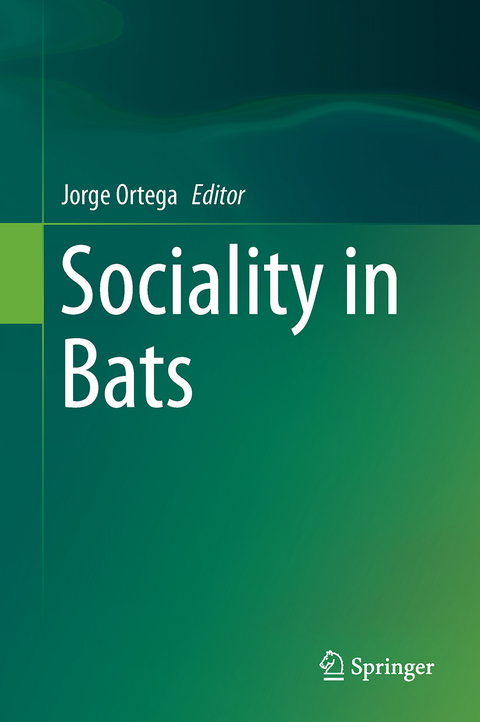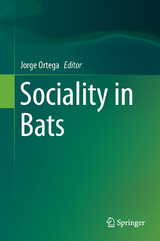Sociality in Bats
Springer International Publishing (Verlag)
978-3-319-38951-6 (ISBN)
This book provides new insights into the social behavior of bats - one of the most fascinating topics currently being pursued by researchers. After an introduction reviewing the history of research in bat behavioral ecology, it covers three major themes: bat sociality per se (Part I), bat communication (Part II), and ecological aspects (Part III). Part I offers a concise overview of the social organization and systems of bats, introducing readers to the complexity and dynamics of group structures. Part II is devoted to the innovative field of social communication, focusing on bat songs, dialects and calls. Part III discusses the influence of the environment on bat behavior, particularly with regard to roosting and foraging. This book addresses the needs of researchers working in behavioral sciences, evolution and ecology.
Dr. Jorge Ortega ReyesLab. Bioconservación y ManejoEscuela Nacional de Ciencias BiológicasInstituto Politécnico Nacional Ciudad de México, México
Introduction.- The social organization and behavior of the brown long-eared bat Plecotus auritus.- Sex-biased dispersal and social systems of Neotropical Emballonurids.- Should I stay or should I go? Fission-fusion dynamics in bats.- Sociality, parasite, and pathogens in bats.- The complex songs of two Molossid species.- Acoustic communication and group cohesion in Spix´s disc-winged bats.- Sexually selected vocalizations of Neotropical bats.- Daily and seasonal patterns of singing by the Mexican free-tailed bat, Tadarida brasiliensis.- Social learning and information transfer in bats: conspecific influence regarding roosts, calls, and food.- Indiana bat (Myotis sodalis) day roost characteristics in the southeastern Ontario Lake plain of New York State.- Effects of range, habitat and roosting ecology in patterns of group association in bats.- Response of bat social groups to roost loss: More questions than answers.- The influence of sex and reproductive status on foraging behavior and seed dispersal by Uroderma convexum (Chiroptera: Phyllostomidae).
| Erscheinungsdatum | 08.10.2016 |
|---|---|
| Zusatzinfo | VI, 301 p. 53 illus., 17 illus. in color. |
| Verlagsort | Cham |
| Sprache | englisch |
| Maße | 155 x 235 mm |
| Themenwelt | Geisteswissenschaften ► Psychologie ► Verhaltenstherapie |
| Medizin / Pharmazie ► Studium | |
| Naturwissenschaften ► Biologie ► Humanbiologie | |
| Naturwissenschaften ► Biologie ► Ökologie / Naturschutz | |
| Naturwissenschaften ► Biologie ► Zoologie | |
| Schlagworte | Acoustic communication • Animal ecology • Bat parasites • Bat pathogens • Bat songs • Behavioral Sciences • Biomedical and Life Sciences • Chiroptera • foraging • Model vertebrates • Molossid species • Myotis sodalis • Neotropical bats • Neotropical Emballonurids • Plecotus auritus • roosting • Social behavior • social learning • Tadarida brasiliensis • Uroderma convexum • Vertebrates |
| ISBN-10 | 3-319-38951-3 / 3319389513 |
| ISBN-13 | 978-3-319-38951-6 / 9783319389516 |
| Zustand | Neuware |
| Haben Sie eine Frage zum Produkt? |
aus dem Bereich




